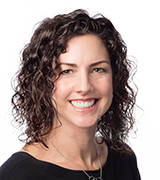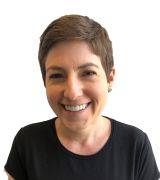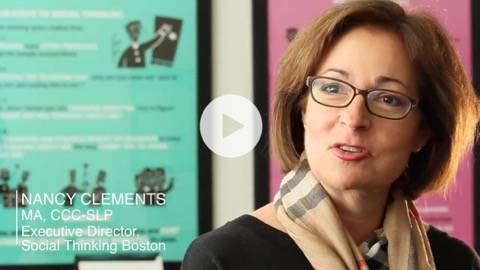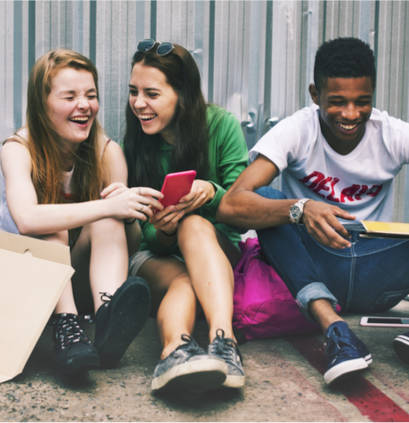
About our Clinical Treatment for Families
Social Thinking® is a cognitive behavioral treatment approach focused on fostering social learning due to weak social cognition or compelling social anxiety. To fully benefit from our services, students/clients must have average to above-average language and cognition.
We have two sister clinics in California, Social Thinking-Stevens Creek and Social Thinking-Santa Clara. Each clinic is individually owned and operated, but operate through one administrative services department. Families apply to attend both clinics during the school year semester by filling out one set of paperwork, which must be submitted to the Social Thinking-Stevens Creek clinic in San Jose, CA.
We have a third clinic in Boston (Sudbury), which provides therapy to clients in the New England area. The Boston clinic opened in 2012 with Michelle’s endorsement and under the direction of Nancy Clements, a social-cognitive therapist and a member of the Social Thinking Training and Speakers’ Collaborative.
Santa Clara, CA
- Clinical Treatment
- Assessment
- Summer Programs
- Clinic Service Rates
- FAQ
Our clinical services are focused on implementing the core Social Thinking® teachings and related social skills for students with average to above average language and cognition from as young as 4 years old into and across adulthood.
We encourage the development of social learning and self-regulation through the teachings of Social Thinking® frameworks and related strategies as well as utilize other professionals work that adheres to a social cognitive behavioral treatment approach. We enjoy using materials developed by Sarah Ward and Kristen Jacobsen to help teach executive functioning; Story Grammar Marker® by Maryellen Rooney Moreau to encourage social interpretations and social problem solving; sensory regulation strategies, etc. We develop treatment based on the best evidence available and experienced professional staff, and we value feedback from our clients as well as their family members. We focus on teaching strategies to enhance social learning which can be summarized by saying we address executive functioning, perspective taking, emotional awareness, self-awareness and self-monitoring and central coherence.
Clinical Treatment Questions?
Contact our Clinic in San Jose
clinicinfo@socialthinkingsc.com
(408) 224-2005
Office hours: M–F, 9am – 7pm Pacific Time
Or select the Clinical Treatment age group below to learn more and apply.
This information is for the San Jose Clinic only. For information about services at the Boston Clinic visit its independent website.
The Informal Social Thinking Dynamic Assessment Protocol (ISTDAP), developed by Michelle Garcia Winner, is a means of identifying and quantifying in real-time a student's social competencies as well as connecting the dots between a student's social learning abilities and possibly related academic strengths and weaknesses. The ISTDAP is not intended to be a diagnostic tool; instead it's to be used with people who have already been identified as having a social skills problem but the team is unclear where to start in the treatment process or how deeply they are impacted socially.
ISTDAPs (our assessment) are usually scheduled concurrently with clinical trainings, in which a group of professionals gathers in our clinic to learn the Social Thinking process. The assessment will be observed through a two-way mirror and participants would typically have no knowledge that they are being observed.
Does my child or adult need to be assessed by someone at the clinic prior to determining his or her “fit” in treatment groups?
No. We ask new families to share with us recent educational and neuropsychological reports, if any exist. We also have a family member or the client write us a letter explaining the applicant’s strengths and weaknesses related to their social skills. Typically we are able to figure out a student’s level of their social mind from this information. If not, we then contact the family or adult individual and speak to them on the phone or arrange to meet them for free for a 15-minute “meet and greet” to better understand the person’s social functioning.
What are Informal Social Thinking Dynamic Assessments?
The Informal Social Thinking Dynamic Assessment Protocol (ISTDAP), developed by Michelle Garcia Winner, is a means of identifying and quantifying in real-time a student's social competencies as well as connecting the dots between a student's social learning abilities and possibly related academic strengths and weaknesses.
The ISTDAP is not intended to be a diagnostic tool; instead it's to be used with people who have already been identified as having a social skills problem but the team is unclear where to start in the treatment process or how deeply they are impacted socially. The ISTDAP was created after Michelle grew increasingly frustrated with the limitations of standardized testing, namely that they are unable to currently measure a student’s true social competencies.
The ISTDAP consists of a number of non-standardized tasks which were first introduced through Michelle’s book, Thinking About YOU Thinking About ME. These user-friendly assessment tasks help to more quickly identify a student's social learning ability to interpret and respond to social stimuli in the moment of interaction. The assessment tasks also explore Theory of Mind, Executive Functioning and concepts related to Central Coherence. Since information about this informal assessment process was first published, the tasks and related philosophy have received very positive reviews from a range of professionals (psychologists, counselors, speech language pathologists, occupational therapists, behaviorists, educators, etc.).
ISTDAPs (our assessment) are usually scheduled concurrently with clinical trainings, in which a group of professionals gathers in our clinic to learn the Social Thinking process. The assessment will be observed through a two-way mirror and participants would typically have no knowledge that they are being observed. Click this link for more information about Social Thinking Clinical Trainings.
Waiting List
While anyone can read about these assessment concepts in the book, Thinking About YOU Thinking About ME, only therapists who have sought specific training to demonstrate mastery over this informal dynamic assessment process are permitted to provide assessments to clients in our communities. Therefore, not all clinicians working for our licensed Social Thinking clinics provide these assessments. In fact, the majority is not yet fully trained. Hence, both Social Thinking-Boston and Social Thinking-Santa Clara, the two sites that provide this assessment process, have waiting lists.
Assessment Waiting List
Only therapists who have specific training and demonstrate mastery over Social Thinking's informal dynamic assessment process are permitted to provide assessments to clients. Therefore only our Clinics in Santa Clara and Boston (Sudbury) provide Assessments, both of which have waiting lists.
To be placed on our waiting list please contact:
Vanessa Alcantar at Social Thinking-Santa Clara
(408) 557-8595 clinicinfo@socialthinking.com
This information is for the San Jose Clinic only. For information about services at the Boston Clinic visit its independent website.
Students will explore cutting edge approaches to enhance the development of social cognition for both classroom and social situations. We offer weekly groups and/or individual sessions, each include an individualized lesson, fun activities to practice Social Thinking® concepts, and a parent education component. We take a comprehensive look at your child's social cognitive needs as well as their age and developmental level and develop lessons specific to them. Our summer programs vary from year to year, please see application for specific information. Here is just some of what your child will learn during our summer programs:
- To observe and interpret social expectations
- How social expectations change with age and context
- To become more flexible thinkers
- To deal with anxiety and learn to regulate emotions
- To strengthen social problem solving
- To communicate more effectively and appropriately self-advocate
- Planning and organizational skills
- And much more!
Summer Program Questions?
Contact Our Clinic in San Jose
clinicinfo@socialthinkingsc.com
(408) 224-2005
Office hours: M–F, 9am – 7pm Pacific Time
This information is for the San Jose Clinic only. For information about services at the Boston Clinic visit its independent website.
Weekly Therapy Group: $115 / hour
Group size is generally between 2-4 participants. The group consists of approximately 50 minutes of direct therapy for the students and 10 minutes of parent education each week. Our clinical staff goes above and beyond in coordinating the group placements, however, on some occasions students’ initial placements are not successful. We will coordinate with you in this event.
Individual Therapy: $165 / hour
Individual therapy sessions are limited and offered as space allows. The rate of $165/hr is for all therapists.
Family & Client Related Consultation: $165 / hour
Consultation may take the form of parent requested special time to meet with them to discuss their child, once we have started to see them regularly in the clinic. We may also attend IEP or other meetings, engage in parent requested school observations, write small reports based on what we have learned from the child during our treatment sessions, work with siblings, etc. Travel to and from meetings will be billed at the hourly consultation rate. Telephone, email and any other consultation requested by parents to discuss the client with other care providers will be billed in 15-minute increments.
School District Embedded Training: $200 / hour
Can take place at School District’s place of business and can include brainstorming meetings, small staff training, curriculum development, teacher or aide training, attending IEP meetings or observation of the student in the class. Travel to the worksite is charged at the hourly rate, when it takes more than 15 minutes to drive to and from the appointment.
Informal Social Thinking Dynamic Assessments: *$500
An assessment is not required for an individual to receive services from our clinic. Assessments are only offered at our Social Thinking-Santa Clara and Social Thinking Boston clinics. *$500 is the average rate for the evaluation session (typically 3.0 hours) plus an hourly rate of $160/hr to write any letter or report requested by the family.
Service Rate Questions?
Contact Our Clinic in San Jose
clinicinfo@socialthinkingsc.com
(408) 224-2005
Office hours: M–F, 9am – 7pm Pacific Time
This information is for the San Jose Clinic only. For information about services at the Boston Clinic visit its independent website.
Group and Individual Treatment Sessions
What range of diagnostic labels does Social Thinking serve?
What is the focus of clinical treatment?
What's a treatment semester?
- School year semester: Our school based semester runs the length of a normal school year from the start of September of one year through the middle of June of the next year.
- Summer semester: Both the Social Thinking-Stevens Creek and Social Thinking Boston do unique programming during the summers. They announce their summer plans by March of the current year.
Please contact each clinic for more information. The Social Thinking-Santa Clara clinic does not run clinical groups during the summer.
How are Social Thinking® groups different than other social skills groups?
Social Thinking Clinics use the treatment framework and curriculum developed by Michelle Garcia Winner to teach the thinking that underlies social skills. We explore the Social Thinking and a student’s related social skills; we will also help to connect the dots on how the social mind impacts social academic tasks as well. We seek to teach students how to socially problem solve rather than to memorize because the social experience requires us to adapt our social behavior based on the situation and social situations constantly change!
We are very sensitive to grouping each client in a group with students who have similar social learning strengths and weaknesses so that all information explored and taught is relevant and meaningful to that student. We seek to keep our group size small; our groups rarely exceed 4 students, total. This is because we want each student to be an active participant during the session.
We also want the parents and other relevant caregivers to be aware of the lessons we are teaching so we spend the last 10 minutes of each session working with the parent/caregiver who can help take these lessons back into the home and understand how these same lessons relate to the school experience as well.
Overall, we provide highly individualized services that seek to provide relevant lessons that parents can further explore with their children at home and in the community.
We use the analogy that our student’s social learning is like the growth of a tree. We illustrate this on our poster, The Social Thinking Social Learning Tree: First a strong social root system must develop. The roots are made up of cognitive aspects such as language, joint attention, executive functioning, etc. Then the trunk allows for us to fully learn about and coordinate core social learning concepts described best in our ILAUGH Model of Social Thinking before it can grow various social based abilities on the branches and leaves such as reading comprehension, written expression, play ground play, working as part of a group, etc.
When we consider the learning process, it is easy to see that teaching social skills will not go far if the client does not understand the concepts that support the development of these skills. Further more, our social mind is used not only to navigate our social skills but to also engage in social academic tasks as eluded to above. A common criticism of the behavioral-skill-based teachings is that this methodology is generally weak in encouraging students to transfer the use of a skill beyond the specific context in which the skill is taught. When we teach social skills without relating them back to the core concept of social thinking, it’s far more likely students will continue to fail to generalize what they’re learning.
For more information about Social Thinking’s perspective on social learning, please click Articles in the top navigation of our website.
How are your groups and individual sessions structured?
Our groups and individual sessions meet once a week for one hour, consists of student treatment (generally 45-50 minutes) and a parent education component (10-15 minutes). During time with parents, the therapist will review what techniques were taught during the session and how they can be carried over at home and school across the week. Our groups are highly individualized and carefully formed to be certain each group member will benefit.
We group clients with same-age peers that function similarly based on perspective taking level, processing speed, ability to attend, and a host of other factors. Our groups have no more than 4 clients, which allows our therapists to create a curriculum for each group based on their particular social cognitive needs. In addition to our purposeful and meticulous grouping process, our groups are also unique in that we actively teach students to think about how to think about others and how others think of them (take perspective). We also work on organizational, problem solving skills and forming social relationships. All of these skills can be worked on in isolation, but are more powerful when a student is guided to see how the skills are interwoven. Humor is also an important component of our program.
How long is each weekly group or individual appointment?
How long is each treatment session?
Given the challenge of creating the appropriate treatment groups and the many and varied lessons to be explored for each and every student, regardless of their age we tend to run only two different treatment sessions:
Session 1: September to June, meeting most weeks across a school year. Once a student enters into the group they stay with that group for the entire school year. Parents are permitted to exit their child’s participation in a group any time during the year, given two-week’s notice.
Session 2: Each clinic has some type of summer program. The different services offered from year to year tend to vary.
It is important to check with the specific clinic you are interested in working with during the early spring of each year, prior to summer, to learn what type of program they may be offering during any particular year.
How do you group students into treatment groups?
How individualized are the group treatment sessions?
What type of professional is working with my student or family member?
How do you address teaching students with different levels of maturity?
Do the lessons of Social Thinking® easily generalize across environments to home, school and/or community?
No treatment will easily provide the student with the ability to generalize information if we have not taught them how to be aware of this information and their own social behaviors across a range of complex situations. Hence, we work to teach our students how to use this information outside of our clinical treatment sessions, but this is a journey rather than a time-stamped process. Students will carry the concepts out the door more rapidly if adults also speak the language of Social Thinking and help students recognize their own use of Social Thinking concepts and related social behaviors across situations.
We focus our teachings based on a student’s developmental age paired with our understanding of a student’s social functioning level. More literal students will receive more literal lessons even if their typical peers at school are managing to decipher and express highly abstract information. If a student is better able to deal with abstract information but appears to be subtly distinct from their peers, we then place them in a treatment group with similar aged students who have similar social learning issues. We encourage our students to get feedback not only from their Social Thinking teacher but also from their peers, as this helps to further develop self-awareness and self-monitoring.
Do you use typical peer models in your treatment groups?
Social Thinking - Informal Dynamic Assessments
Does my child or adult need to be assessed by someone at the clinic prior to determining his or her fit in treatment groups?
What are Informal Social Thinking Dynamic Assessments?
The ISTDAP is not intended to be a diagnostic tool; instead it’s to be used with people who have already been identified as having a social skills problem but the team is unclear where to start in the treatment process or how deeply they are impacted socially. The ISTDAP was created after Michelle grew increasingly frustrated with the limitations of standardized testing, namely that they are unable to currently measure a student’s true social competencies. The ISTDAP consists of a number of non-standardized tasks which were first introduced through Michelle’s book, Thinking About YOU Thinking About ME, 1st edition (2002) and 2nd edition (2007).
These user-friendly assessment tasks help to more quickly identify a student’s social learning ability to interpret and respond to social stimuli in the moment of interaction. The assessment tasks also explore Theory of Mind, Executive Functioning and concepts related to Central Coherence. Since information about this informal assessment process was first published, the tasks and related philosophy have received very positive reviews from a range of professionals (psychologists, counselors, speech language pathologists, occupational therapists, behaviorists, educators, etc.). ISTDAPs (our assessment) are usually scheduled concurrently with clinical trainings, in which a group of professionals gathers in our clinic to learn the Social Thinking process. The assessment will be observed through a two-way mirror and participants would typically have no knowledge that they are being observed.
While anyone can read about these assessment concepts in the book, Thinking About YOU Thinking About ME, only therapists who have sought specific training to demonstrate mastery over this informal dynamic assessment process are permitted to provide assessments to clients in our communities. Therefore, not all clinicians working for our licensed Social Thinking clinics provide these assessments. In fact, the majority is not yet fully trained. Hence, both Social Thinking Boston and Social Thinking-Santa Clara, the two sites that provide this assessment process, have waiting lists.
To seek more information about being placed on the waiting list please contact:
Vanessa Alcantar at Social Thinking-Santa Clara: 408-557-8595 or clinicinfo@socialthinking.com
Jill Day at Social Thinking Boston (Sudbury, MA): 978-610-6603 or jday@socialthinkingboston.com.
Please note: Informal Social Thinking Dynamic Assessments are NOT required for participating in our Social Thinking groups.
Our Licensed Clinics
What about non-licensed clinics that offer Social Thinking® teachings around the world?
Many products and conference training days published or produced by Social Thinking are available to parents, family members and professionals around the world. Through these materials we work to provide the public with conceptual frameworks and treatment strategies to help people learn to teach concepts related to and copyrighted by Social Thinking. We welcome professionals and well-trained assistants/family members to implement the teachings of Social Thinking to the best of one’s ability as these concepts and strategies are intended to be tools that can be used widely and paired with other treatment techniques.
Many people have shown interest in applying Social Thinking concepts in schools, treatment programs, homes and private clinics. We encourage all people who are applying our teaching concepts through their school or business to read our terms of use papers posted on this website. Social Thinking, along with one of our treatment programs, Superflex®, are trademarked. All published and spoken materials are copyrighted.
We cannot recommend any clinical services marketed to help teach “Social Thinking” which are not provided through our Licensed Social Thinking clinics. That being said, the reality is that some of the programs that teach Social Thinking are quite strong and some are quite weak. Consumers are responsible for assessing the abilities of any person (parent, assistant, professional, etc.) who is teaching what they are describing as “Social Thinking” through a non-licensed program to determine if they are doing it well enough. Admittedly, Social Thinking continues to evolve, thus providers of services teaching related strategies also need to continue to grow in their abilities over time.
What are licensed Social Thinking Clinics?
Licensed Social Thinking Clinics are independently owned. The staff at these clinics work closely with Michelle and her colleague, Dr. Pamela Crooke, by receiving ongoing onsite training as well as clinical grand rounds most months of the year. Michelle does not intend to affiliate with a large number of licensed Social Thinking Clinics due to her demanding schedule.
Licensed Social Thinking clinics are teaching clinics. We encourage professionals from all over the world to get an “inside” look at our Social Thinking clinical sessions. Once a month between September and June of each school year session, professionals who have been selected to participate in our Clinical Training program observe an assessment along with our clinical services for most sessions we offer during that treatment week. To participate in our clinic we require families of children to agree to allow professionals to observe sessions. We provide more leeway to our adults seeking services. The participants in the Clinical Training program observe through our one-way mirrors and are not typically brought into the treatment room, unless their participation in a session adds value to the treatment plan (an opportunity for the students to practice their social thinking and related skills on an unfamiliar person, etc.). We have been running our Clinical Training program since 2003 (formerly called Mentor Training program) without it interrupting any clinical sessions.
Licensed Social Thinking clinics provide weekly small group and individual sessions for ages preschool through adulthood. Our groups are highly individualized and carefully formed to be certain each group member will benefit. We group clients with same-age peers that function similarly based on perspective taking level, processing speed, ability to attend, and a host of other factors. Our groups have no more than 4 clients, which allows our therapists to create a curriculum for each group based on their particular social cognitive needs. Therapists of preschool and school age children work closely with the clients’ parents, meeting with them the last 10-15 minutes of each week’s treatment session. We can also provide additional school and family consultations. Assessments are available as scheduling allows, but assessments are NOT required for placement into a Social Thinking group.
What does it mean when a professional says they have attended a “Clinical Training” or “Mentor Training” program at a licensed Social Thinking® clinic?
Insurance
Do you accept medical insurance?
- We do NOT process insurance claims on behalf of a client or family. Our role is to provide records when and if they are requested by a family in order for the client/parent to submit such claims to their respective insurance company.
- Some insurance companies will only reimburse for specific Diagnostic Codes. On your monthly billing statement, if specifically requested by the client, we include the diagnostic code from medical reports provided by the client. We cannot enter a medical diagnostic code based on an educational classification alone. Our statements also include a procedure code to reflect the service provided (group speech therapy or individual speech therapy).
- Due to the intensive time and cost related to gathering information for an insurance claim, we will charge an administrative fee based on $40.00 per hour for any administrative requests which include copies of previous invoices, reports, therapy notes, or calls to insurance companies.
- We will not sign any contract offered to us by an insurance company that states that we agree to be paid a lesser fee than what we have established as our fee for service, even if the parent has paid our insurance administrative fee.
Local School Treatment Providers
How can local school district treatment providers learn Social Thinking's methods?
Typically an embedded training offers the following:
- A selection of topics upon which the identified team can be trained (e.g. assessment, inclusion based strategies, grouping students, Social Thinking and social skills for the playground or after school program, transition to adulthood, individual or small group pull out sessions, etc.).
- Brainstorming sessions to understand the culture and needs of the educators within a specific program as well as determine data collection.
- Small staff meetings to address specific needs and provide hands-on treatment strategies for use across the school day and to be carried over into the homes.
- Curriculum development when creating long-term pathways for social cognitive learning (this can be included in a school day as part of SEL, PBIS or RTI) or aide training to help embed Social Thinking concepts into the classroom. The embedded school trainings are best utilized when the participants have already attended a couple of larger, more general Social Thinking conference days. The participants can then work with their trainers from our Social Thinking clinics to delve into specific information that is unique for their community and culture.
For more information about the embedded trainings if located near:
- San Jose, CA. please contact Allison King at 408-244-2005 or clinicinfo@socialthinkingsc.com
- Boston, MA. please contact at Jill Day 978-610-6603 or jday@socialthinkingboston.com
What if I want to come observe the clinical treatment sessions?
Who Benefits From Our Clinical Treatment Services
What is the focus of the clinical treatment?
We encourage the development of social learning and self-regulation through the teachings of Social Thinking® frameworks and related strategies as well as utilize other professionals’ work that adheres to a social cognitive behavioral treatment approach. We enjoy using materials developed by Sarah Ward and Kristen Jacobsen to help teach executive functioning; Story Grammar Marker® by Maryellen Rooney Moreau to encourage social interpretations and social problem solving; sensory regulation strategies, etc. We develop treatment based on the best evidence available and experienced professional staff, and we value feedback from our clients as well as their family members. We focus on teaching strategies to enhance social learning which can be summarized by saying we address executive functioning, perspective taking, emotional awareness, self-awareness and self-monitoring and central coherence.
Our clinical services are focused on implementing the core Social Thinking® teachings and related social skills for students with average to above average language and cognition from as young as 4 years old into and across adulthood.
What range of diagnostic labels do we serve?
Social Thinking® is a cognitive behavioral treatment approach focused on fostering social learning due to weak social cognition or compelling social anxiety. A large range of diagnostic labels represent persons with social learning challenges and/or social anxiety. There can be tremendous over-lap in these labels. In our treatment model, we do not treat diagnostic labels instead we treat the individual. Although not all of our clients have a diagnosis, some of the many labels that have benefitted from our services include: ADHD, Autism Spectrum Disorders- Levels 1 and 2, High Functioning Autism, Asperger’s Syndrome, learning disabilities, sensory dysregulation, executive dysfunction, twice-exceptional, gifted and talented, social anxiety, socially phobic, expressive-receptive language issues, specific language impairment, traumatic brain injury, Tourette’s Syndrome, PDD-NOS, Dysgraphia, etc.
To fully benefit from our services, students/clients must have average to above-average language and cognition.
How are services different for adult clients?
We are an unusual set of clinics in that we specialize in working with teens, young adults who are transitioning into adulthood as well as adults of all ages.
When working with our adult clients, we use our core Social Thinking concepts as well as concepts and strategies specifically designed for the individual we are working with.
We bridge social thinking, the social emotional experience, and social competencies. During our sessions we help clients better define their treatment goals, explore practical concepts and strategies that are practiced in our clinic as well as by the client away from our clinic.
We commonly work with high school students who are preparing for adulthood, university/college students, adults living with their families and a large range of professionals who are getting relatively poor feedback from their superiors on the job. All of our clients are dealing with confusion or frustration when trying to navigate the tricky waters of adult friendship and personal relationships.
It is more common for our adults to be seen individually but we also provide group services. If there is a good group for the adult client, and they are seeking social group services, we will have them try it out to see if it is a good fit for them.
When working with adult clients, we also like to meet with a family member when possible. Just like with our younger students, the social experience can happen any time of day and it is great to keep people who live with our clients abreast of concepts they can use to help encourage more positive social relations.
What is the role of family in the treatment process?
Is Social Thinking® effective? Is it an Evidence-Based Practice?
There is an emerging body of evidence about the collection of techniques developed by Michelle Garcia Winner. Dr. Pamela Crooke led a treatment study with speech and language graduate students from the University of Arizona, to explore if teaching core Social Thinking concepts with students with High Functioning Autism or Asperger Syndrome resulted in a measurable behavior change in a generalized environment.
The research described the large multiple baseline single-subject design study of children with Autism Spectrum Disorders (ASD). The report examines the effectiveness of teaching a social cognitive (Social Thinking) approach to six males with Asperger Syndrome (AS) or High Functioning Autism (HFA). Data included are restricted to pre- and post-treatment comparisons of verbal and non-verbal social behaviors. Structured treatment and semi-structured generalization sessions occurred over eight weeks. Results indicated significant changes from pre- to post- measures on both verbal/nonverbal “expected” and “unexpected” behaviors, significant increases in the subcategories of “expected-verbal,” “listening/thinking with eyes,” and “initiations,” and robust decreases in the subcategories of “unexpected-verbal” and “unexpected-nonverbal.” Importance of social cognitive approaches for children with AS and HFA is discussed.
Frequently Asked Questions
All these questions and answers have been developed over the years based on our commitment to provide the best possible service to our community. For over 20 years our experts have been a guiding resource for schools, clinics, and families around the world, and we’re here for you, too.
To read more about a category, simply click the row or drop down arrow.
This information is for the San Jose Clinic only. For information about services at the Boston Clinic visit its independent website.




















